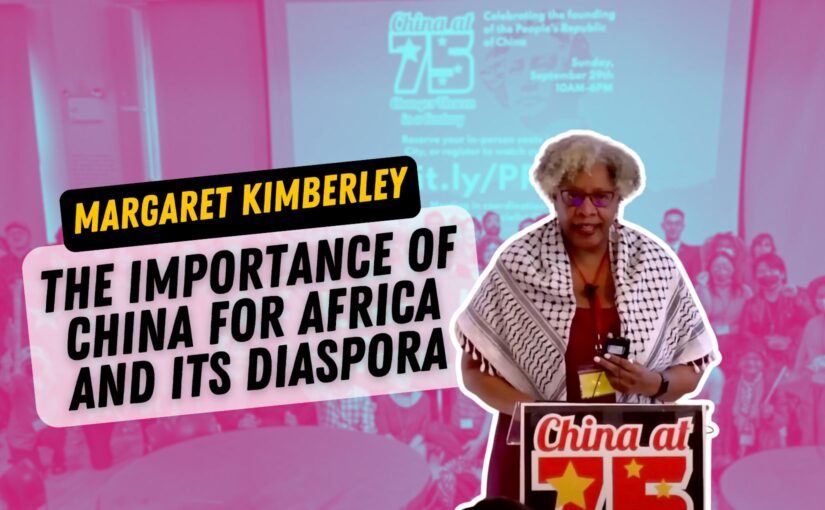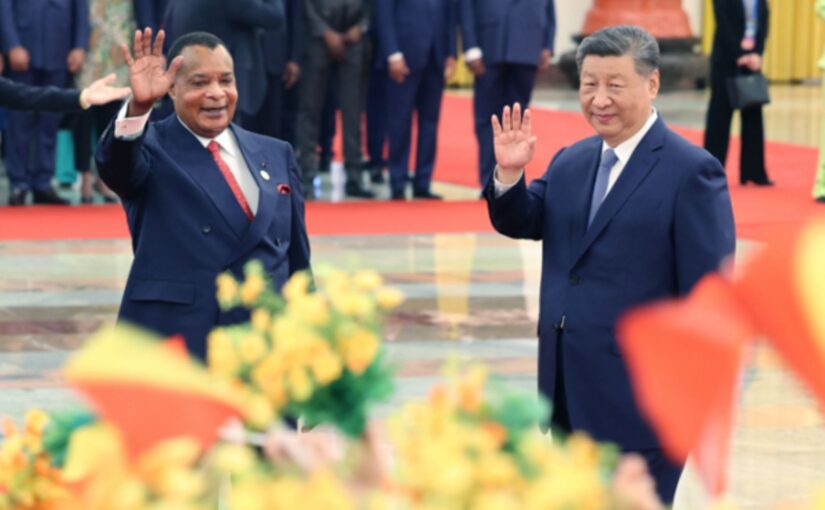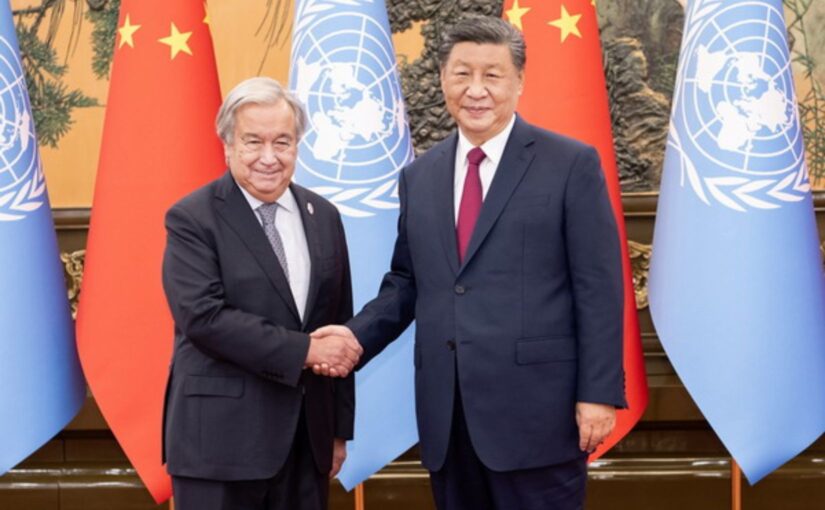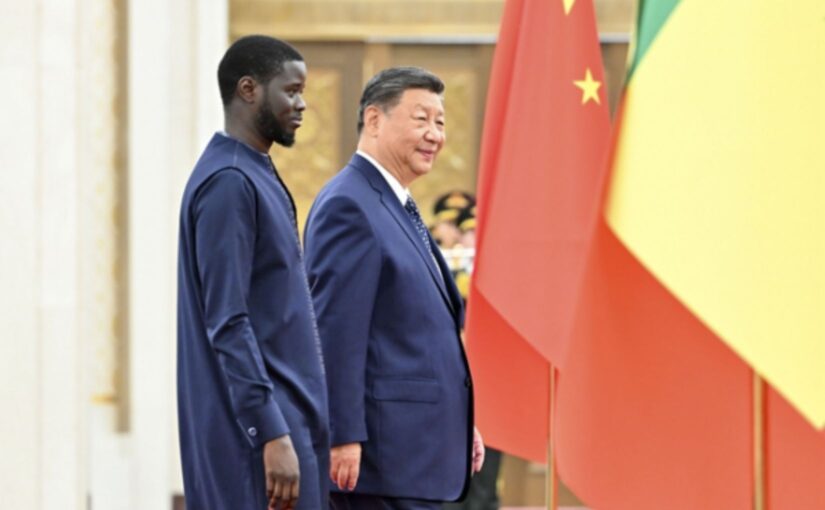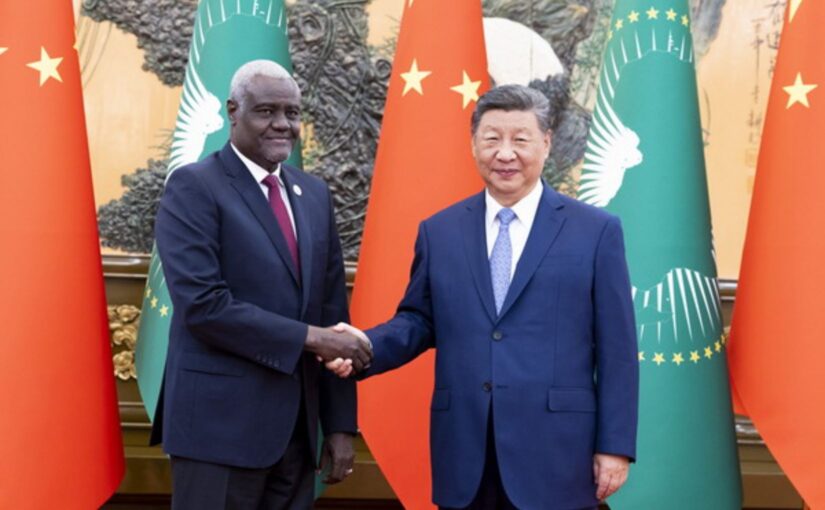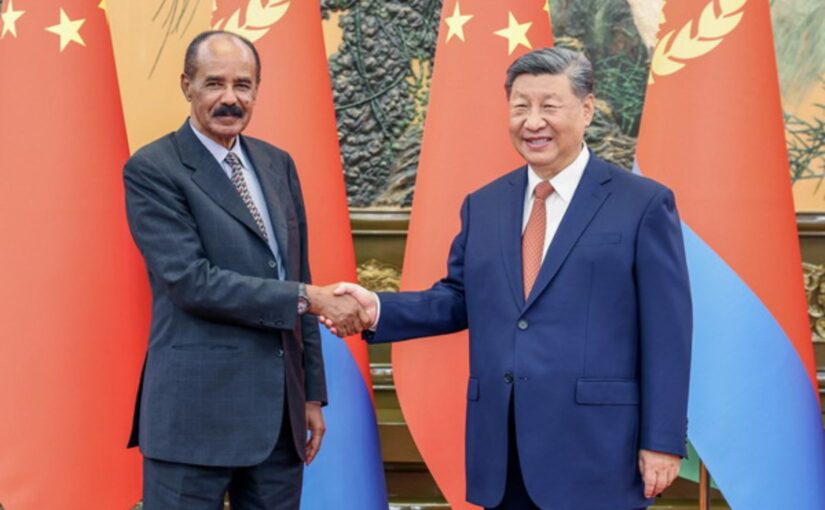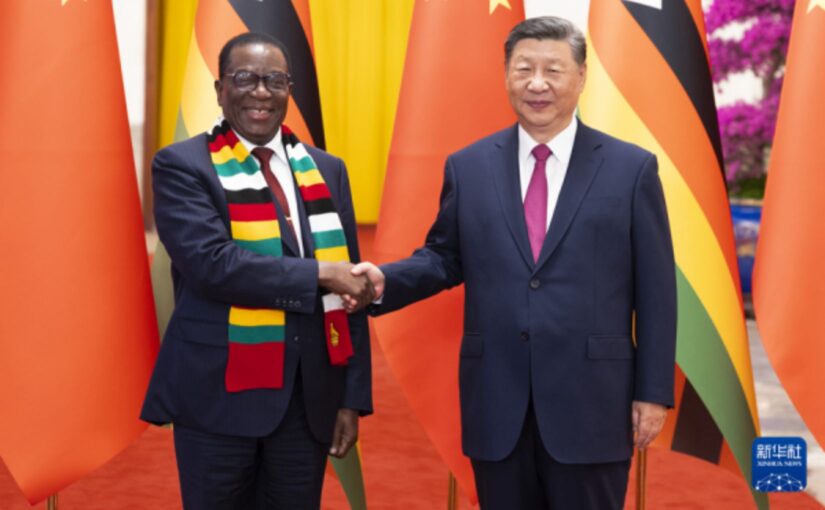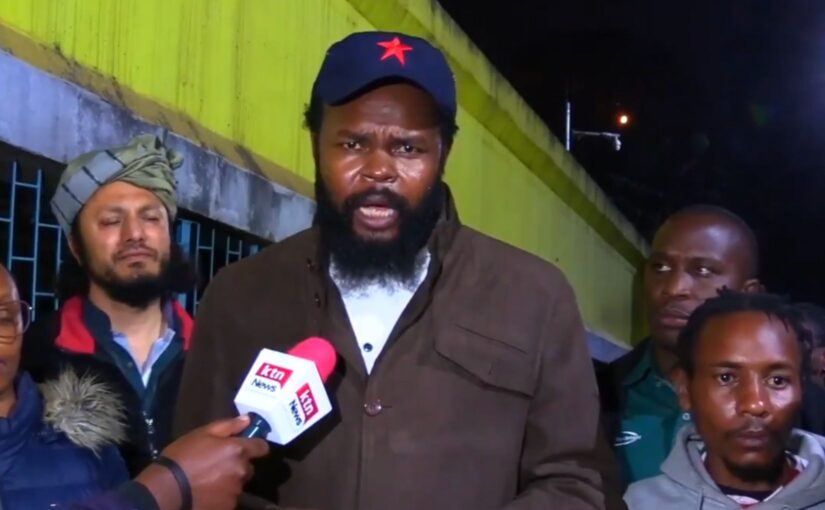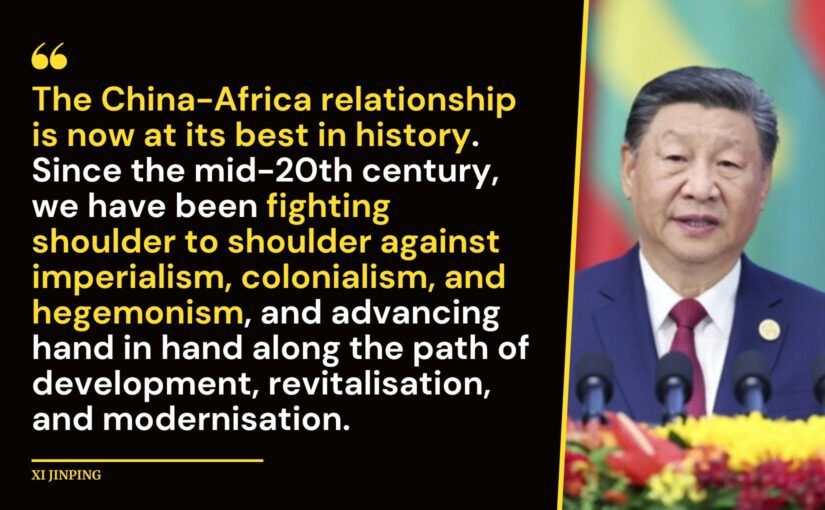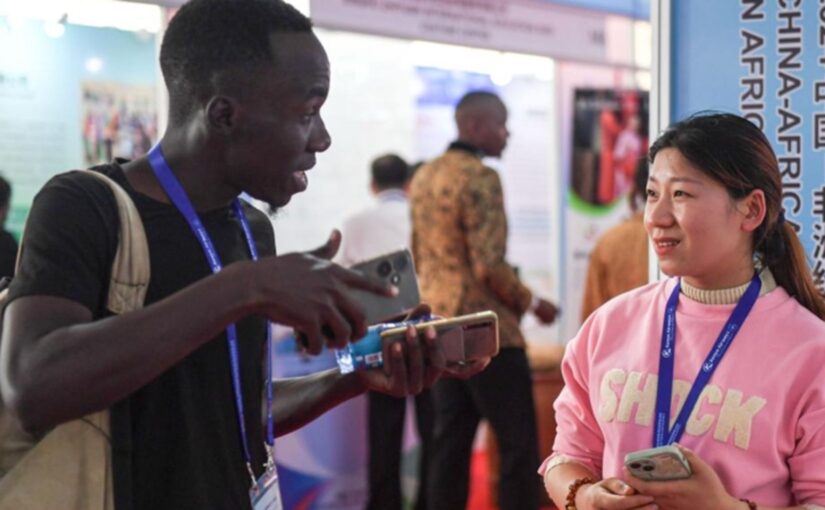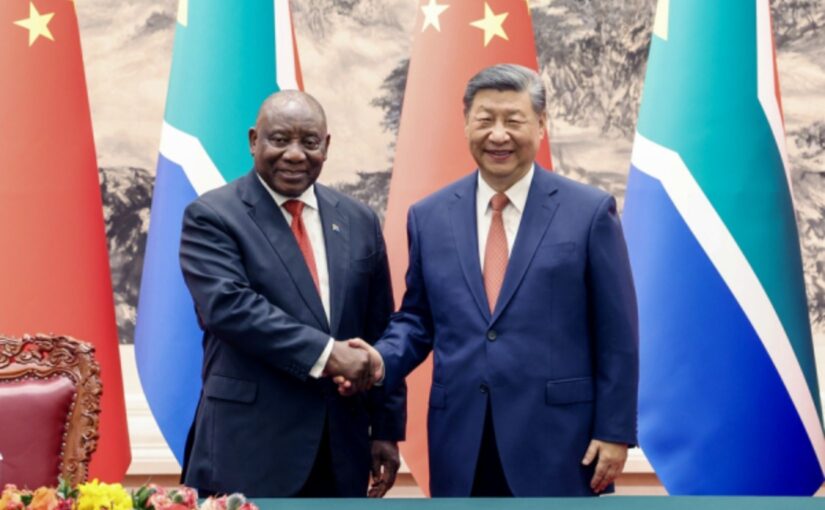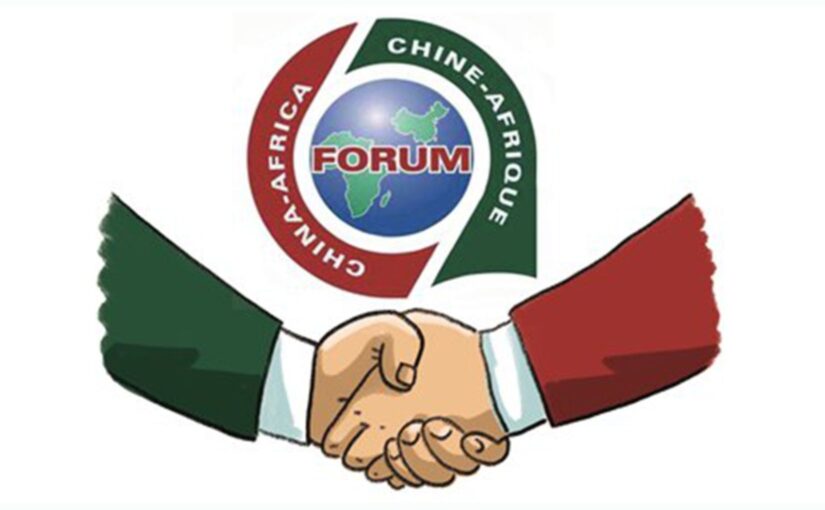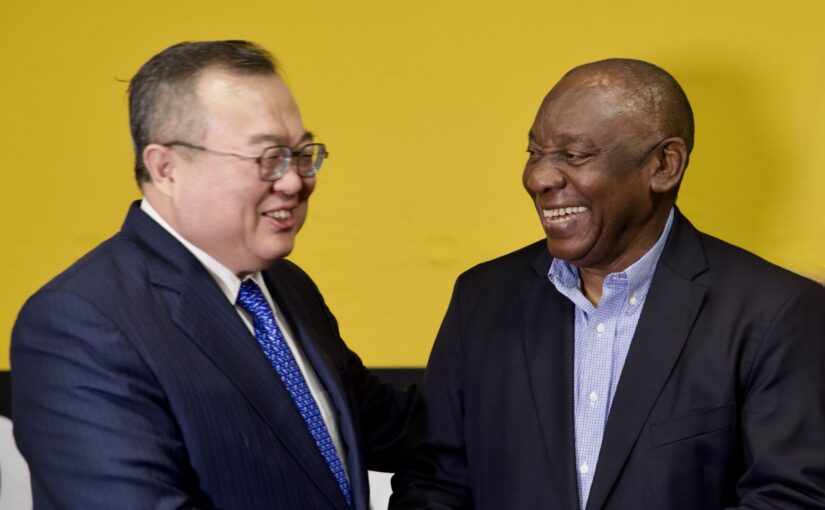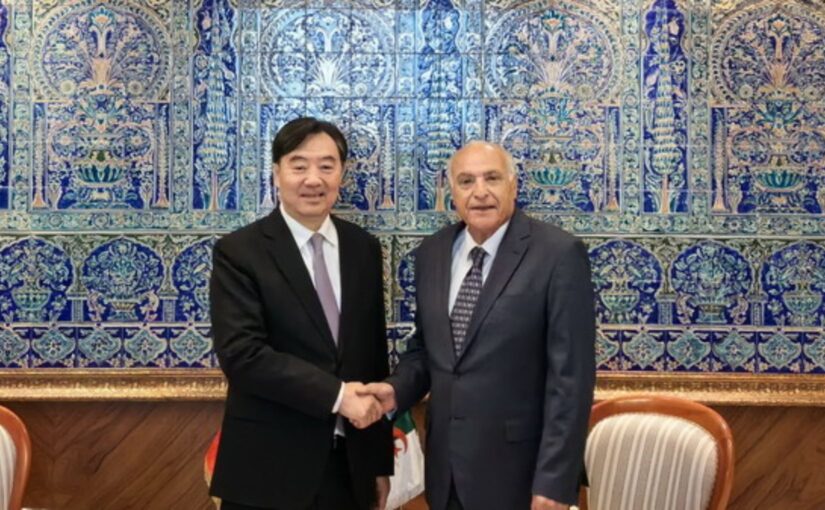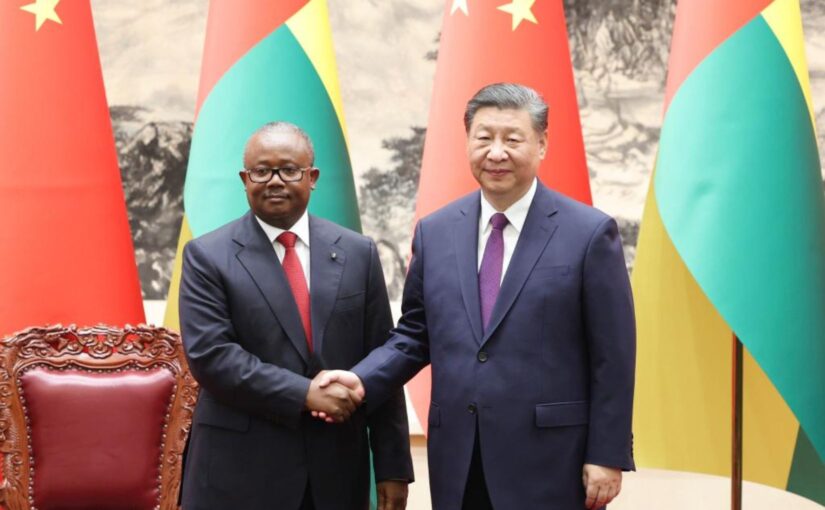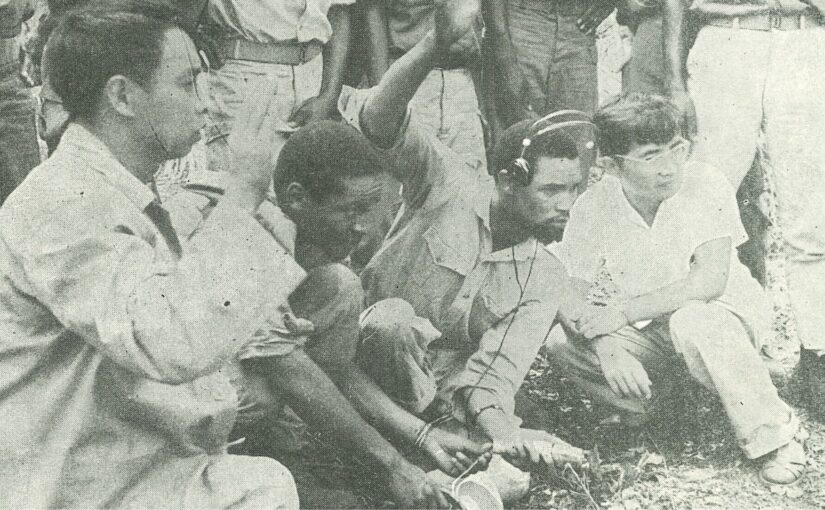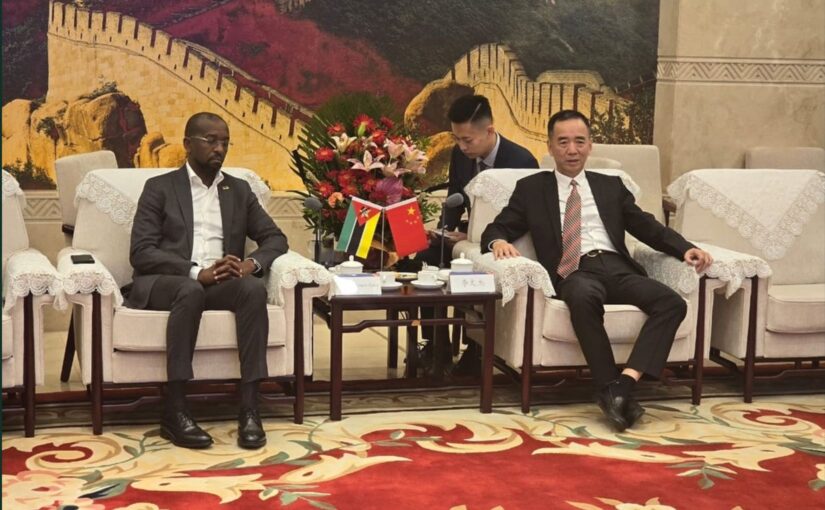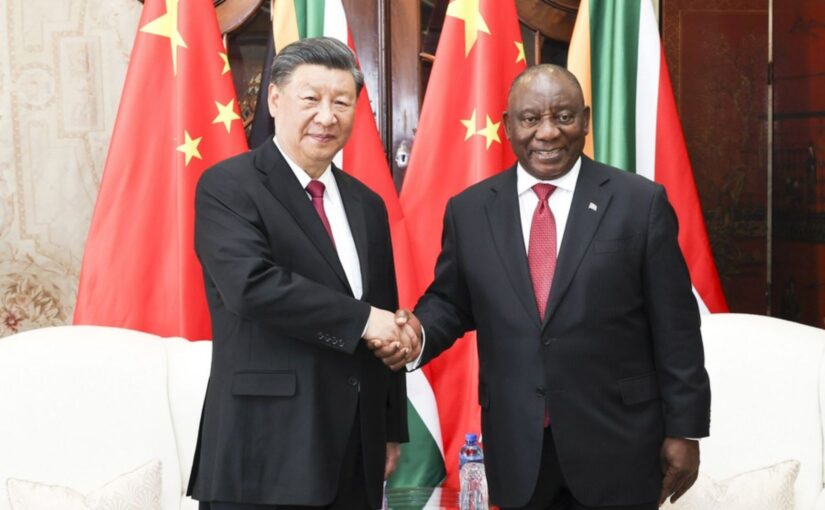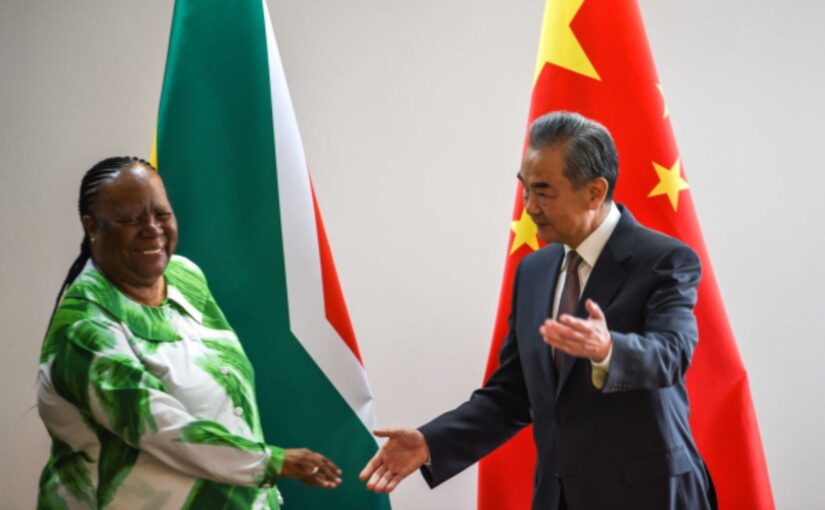Liu Jianchao, Minister of the International Department of the Communist Party of China (CPC) Central Committee (IDCPC), led a party delegation to South Africa at the end of July and the beginning of August. It was the first stop on a tour of a number of countries in Africa and Latin America.
On August 1, Minister Liu met with Cyril Ramaphosa, President of the African National Congress (ANC) of South Africa and of the Republic of South Africa. Welcoming Liu and his delegation, Ramaphosa said that the CPC delegation’s visit to South Africa at this time (following the recent election and the formation of a government of national unity) demonstrates the Chinese side’s firm support for the ANC and South Africa. He said that he maintains close exchanges with President Xi Jinping and has forged a close friendship, of which he is proud. President Xi Jinping has visited South Africa many times, promoting bilateral relations for continuous improvement and upgrading, which has deeply moved and inspired the South African side. The South African government will keep its policies toward China unchanged and will continue to be committed to promoting the development of a comprehensive strategic partnership. South Africa firmly adheres to the one-China principle and thanks the Chinese side for its long-term valuable support and assistance.
Ramaphosa added that the leadership of the CPC is what has allowed China to realise today’s development achievements and the CPC’s achievements have also inspired the ANC. Since its establishment, the ANC has been fighting for South Africa’s national independence and development. Despite setbacks, it will not give up easily, nor will it shirk its responsibility to lead the country’s development and revitalisation. Calling the CPC a reliable friend and close comrade of the ANC, he said the ANC cherishes its sincere friendship with the CPC.
Liu said, the Chinese side congratulates the ANC on its victory in the general election again and President Cyril Ramaphosa on his successful re-election. He voiced confidence that under the strong leadership of President Cyril Ramaphosa and the ANC, the government of national unity will closely unite the people and help South Africa make new development achievements. (In the election, the ANC secured 40.2% of the vote, almost twice that of its nearest rival – and now coalition partner – the Democratic Alliance [DA], which secured 21.8%.)
China and South Africa, Liu continued, are both important members of the Global South and emerging economies. The Chinese side is willing to strengthen coordination and cooperation with South Africa on multilateral affairs, promote the construction of a more just and reasonable international political and economic order, and safeguard the common interests of the vast number of developing countries.
He added that the CPC and the ANC have a long-standing friendship. The Chinese side firmly believes that as a mature political party that has stood the test of the changing circumstances, the ANC will carry forward its fine traditions, firmly grasp the correct development direction of South Africa, and promote China-South Africa relations for robust development.
The previous day, Liu had met with ANC Secretary-General Fikile Mbalula. Liu said, the Chinese side congratulates the ANC on its leadership in forming a government of national unity, which proves that the ANC is a mature century-old party with political wisdom and believes that the ANC will unite and lead the South African people to achieve new achievements in national development.
On August 1, he met with Ronald Lamola, Member of the National Executive Committee of the ANC and South African Minister of International Relations and Cooperation. Lamola said that South Africa is grateful to the Chinese side for providing valuable support in its struggle for national independence and construction. He expressed the hope to expand mutually beneficial cooperation with the Chinese side in areas such as trade and investment. He added that the the foreign policy of the new South African government will not change, and that South Africa will continue to firmly adhere to the one-China principle and steadfastly support China’s positions on issues concerning its core interests. South Africa highly appreciates China’s significant role in promoting the improvement of relations between Saudi Arabia and Iran as well as facilitating the reconciliation of Palestinian factions. He expressed the hope to strengthen coordination with the Chinese side within the BRICS cooperation mechanism and the G-20. South Africa looks forward to participating in the 2024 FOCAC (Forum on China Africa Cooperation) Summit in Beijing, this coming September, believing that it will help African countries advance the African Union’s Agenda 2063 and promote greater development in Africa-China relations.
On July 31, Liu met with Solly Afrika Mapaila, General Secretary of the South African Communist Party (SACP). He congratulated the SACP on its 103rd anniversary, which fell in February. He said that the CPC and the SACP are both Marxist parties, share the same ideals and beliefs, always understand and support each other, and are time-tested good comrades and good brothers.
Mapaila said, the SACP cherishes its friendly relations with the CPC, and thanks the Chinese side for its long-term valuable assistance to South Africa’s economic and social development and the improvement of people’s livelihood, as well as its strong support for the SACP, the African National Congress and other progressive forces in South Africa.
On August 3, Liu also met with the parliamentary leaders of some of the political parties which are participating in the new government of national unity. He met with Mzwanele Nyhontso, President of the Pan Africanist Congress (PAC) of Azania and Minister of Land Reform and Rural Development; Mogamad Ganief Ebrahim Hendricks, President of the Al Jama-ah and Deputy Minister of Social Development; Brett Herron, Secretary-General of the GOOD Party; and Thandi Nontenja, National Treasurer of the United Democratic Movement (UDM).
Liu said, China and South Africa enjoy a time-honoured friendship. As early as in the struggle against imperialism, colonialism and racism, the two peoples have supported each other and forged a profound friendship.
The South African party leaders thanked the Chinese side for its long-term and valuable support to the economic and social development of South Africa and expressed their hope to strengthen exchanges with the CPC and learn from its experience in party building and state governance in order to facilitate South Africa’s development and advance South Africa-China relations.
For their part, Nyhontso said, the PAC has a long history of interacting with China, with many of its leaders and members having trained in China. He hoped to learn from China’s experience in areas such as land reform and rural development to help South Africa solve its prominent problems. [China consistently supported the PAC as one of the country’s national liberation movements during the struggle against apartheid, maintaining a close relationship for a long time.]
Hendricks fondly recalled his experience of interacting with the Chinese side and appreciated China’s great achievements in poverty alleviation. Calling the strong leadership of the CPC the key to China’s success, he said he would like to learn from the Chinese side’s experience.
Herron said, South Africa can benefit from China’s rapid economic and social development and hoped that the two countries will strengthen practical cooperation in various fields, closely coordinate and cooperate in BRICS and other multilateral mechanisms and promote a more just and equitable international order.
Nontenja said, as South Africa is undergoing special changes in its political landscape, the UDM is willing to play a role in the country’s development and hopes to strengthen exchanges with the CPC on national and party construction.
On August 2, Liu and his delegation also held discussions with representatives from South Africa’s media and think tanks.
Following its visit to South Africa, the CPC delegation proceeded to Uruguay.
The following articles were originally published on the website of the IDCPC.
Cyril Ramaphosa, President of ANC and President of South Africa Meets with Liu Jianchao
Johannesburg, August 1st (IDCPC) — Cyril Ramaphosa, President of African National Congress (ANC) and President of South Africa, met here today with Liu Jianchao, Minister of the International Department of the CPC Central Committee.
Ramaphosa welcomed Liu and the CPC delegation. He said, the CPC delegation’s visit to South Africa, which is experiencing a special moment now, demonstrates the Chinese side’s firm support for the ANC and South Africa. I maintain close exchanges with President Xi Jinping and have forged a close friendship, which I am proud of. President Xi Jinping has visited South Africa many times, promoting bilateral relations for continuous improvement and upgrading, which has deeply moved and inspired the South African side. The South African government will keep its policies toward China unchanged, and will continue to be committed to promoting the development of a comprehensive strategic partnership between South Africa and China. South Africa firmly adheres to the one-China principle and thanks the Chinese side for its long-term valuable support and assistance.
Ramaphosa said, the leadership of the CPC is what allowed China to realize today’s development achievements, and the CPC’s achievements have also inspired the ANC. Since its establishment, the ANC has been fighting for South Africa’s national independence and development. Despite setbacks, it will not give up easily, nor will it shirk its responsibility to lead the country’s development and revitalization. Calling the CPC a reliable friend and close comrade of the ANC, he said the ANC cherishes its sincere friendship with the CPC and hopes to further strengthen exchanges between the two Parties at all levels and strengthen experience exchanges in national construction and party building.
Liu said, the Chinese side congratulates the ANC on its victory in the general election again and President Cyril Ramaphosa on his successful re-election. Liu voiced confidence that under the strong leadership of President Cyril Ramaphosa and the ANC, the government of national unity will closely unite the people and help South Africa make new development achievements. In August last year, President Xi Jinping successfully visited South Africa and reached important consensus with President Cyril Ramaphosa, charting the course for the further development of relations between the two countries. The Chinese side is willing to work with the South African side to implement the consensus reached by the top leaders of the two Parties and countries, deepen political mutual trust, expand practical cooperation in various fields, firmly support each other on issues involving each other’s core interests, and promote China-South Africa comprehensive strategic partnership for new and greater development. China and South Africa are both important members of the Global South and emerging economies. The Chinese side is willing to strengthen coordination and cooperation with South Africa on multilateral affairs, promote the construction of a more just and reasonable international political and economic order, and safeguard the common interests of the vast number of developing countries.
Liu said, the CPC and the ANC have a long-standing friendship. The Chinese side firmly believes that as a mature political party that has stood the test of the changing circumstances, the ANC will carry forward its fine traditions, firmly grasp the correct development direction of South Africa, and promote China-South Africa relations for robust development. The Chinese side is willing to strengthen institutionalized exchanges with the ANC as always, deepen exchanges and mutual learning of experience in party building and state governance, enhance its own governing capacity, and promote China-South Africa relations to a new level.
Liu Jianchao Meets with Fikile Mbalula, Secretary-General of African National Congress (ANC) of South Africa
Pretoria, July 31st (IDCPC) — Liu Jianchao, Minister of the International Department of the CPC Central Committee, met here today with Fikile Mbalula, Secretary-General of African National Congress (ANC) of South Africa.
Liu said, the Chinese side congratulates the ANC on its leadership in forming a government of national unity, which proves that the ANC is a mature century-old party with political wisdom, and believes that the ANC will unite and lead the South African people to achieve new achievements in national development. Under the new circumstances, the CPC is willing to work with the ANC to implement the important consensus reached by the top leaders of the two Parties and two countries, maintain high-level strategic communication and political mutual trust, continue to firmly support each other on issues involving respective core interests, deepen exchanges and mutual learning of experience in state governance and administration, and bring China-South Africa comprehensive strategic partnership to a new level. The Chinese side is willing to, together with the South African side, strengthen coordination and cooperation within multilateral frameworks such as the BRICS cooperation mechanism and the Group of 20, promote common development of the Global South countries, and jointly safeguard international fairness and justice.
Mbalula said, the ANC and the CPC have a long-standing friendship, and the relationship between the two Parties is an important foundation for the relationship between South Africa and China. The ANC congratulated the CPC on the successful holding of the third plenary session of the 20th CPC Central Committee. Mbalula introduced relevant situation of the South African general election of 2024, and said that the ANC will hold a National Executive Committee meeting to thoroughly summarize the experience and lessons. Calling China a reliable friend of South Africa, the ANC thanks the Chinese side for the long-term valuable support and assistance to South Africa. The South African government’s long-term commitment to the one-China principle will not change, and its friendly policy toward China will not change. Under the new situation, the ANC is willing to continue to strengthen high-level exchanges with the CPC, and learn experience in governing the Party and the country from the CPC, so as to overcome the current challenges, achieve self-reform, and lead the country to develop better.
Lindiwe Zulu, Member of the ANC National Executive Committee, Nokuthula Nqaba, Secretary General of ANC Women’s League and others, were present.
Liu Jianchao Meets with Ronald Lamola, Member of the ANC’s National Executive Committee, South African Minister of International Relations and Cooperation
Pretoria, August 1st (IDCPC) — Liu Jianchao, Minister of the International Department of the CPC Central Committee, met here today with Ronald Lamola, Member of the National Executive Committee of the African National Congress (ANC) and South African Minister of International Relations and Cooperation.
Liu stated that Chinese President Xi Jinping and South African President Cyril Ramaphosa have provided important strategic guidance for the development of bilateral relations, ushering in a “golden era” of building a high-level China-South Africa community with a shared future. The Chinese side is willing to work with the South African side to implement the important consensus reached by the two heads of state. Focusing on the implementation of the “Nine Programs” of the Forum on China-Africa Cooperation (FOCAC) and the 10 Years Strategic Programme on Cooperation between the People’s Republic of China and the Republic of South Africa (2020-2029), both sides need to strengthen the deep alignment of development strategies, consolidate cooperation in advantageous areas, cultivate new growth drivers for cooperation, achieve mutual benefits, win-win results and common development, and continuously benefit the people of both countries.
Liu said, both China and South Africa are influential developing countries and emerging market nations. The Chinese side supports the South African side in playing a greater role in international and regional affairs and is willing to continue to work with the South African side under multilateral mechanisms such as the BRICS cooperation mechanism and the Group of 20, practice true multilateralism, strengthen the Global South countries’ representation and voice in the global governance system, and safeguard the common interests of developing countries. The new meeting of the FOCAC will be held in Beijing. The Chinese side is willing to work with African countries, including South Africa, to achieve more win-win outcomes in China-Africa cooperation.
Lamola stated, Chinese President Xi Jinping’s successful visit to South Africa last year injected strong impetus into the future development of bilateral relations. South Africa is grateful to the Chinese side for providing valuable support in its struggle for national independence and construction. He expressed the hope to expand mutually beneficial cooperation with the Chinese side in areas such as trade and investment. The South African side also hoped that the Chinese side can help it address prominent issues in its development process, advance industrialization, and promote the development of the comprehensive strategic partnership between South Africa and China. He said the foreign policy of the new South African government will not change and that South Africa will continue to firmly adhere to the one-China principle, steadfastly support China’s positions on issues concerning China’s core interests related to the Taiwan question, Hong Kong, Xinjiang, and Xizang. South Africa highly appreciates China’s significant role in promoting the improvement of relations between Saudi Arabia and Iran, and facilitating the reconciliation of Palestinian factions. He expressed the hope to strengthen coordination with the Chinese side within BRICS and the Group of 20. South Africa looks forward to participating in the 2024 FOCAC Summit in Beijing, believing that the summit will help African countries advance the African Union’s Agenda 2063 and promote greater development in Africa-China relations.
Both sides exchanged views on international and regional issues such as the Ukraine crisis and the Palestinian-Israeli conflict.
Liu Jianchao Meets with Solly Afrika Mapaila, General Secretary of the South African Communist Party
Pretoria, July 31st (IDCPC) — Liu Jianchao, Minister of the International Department of the CPC Central Committee, met here today with Solly Afrika Mapaila, General Secretary of the South African Communist Party (SACP).
Liu congratulated the SACP on its 103rd anniversary. He said that the CPC and the SACP are both Marxist parties, share the same ideals and beliefs, always understand and support each other, and are time-tested good comrades and good brothers. Under the new situation, the CPC is willing to work with the SACP to implement the important consensus reached by President Xi Jinping and President Cyril Ramaphosa, continue to deepen strategic communication, strengthen experience exchanges on issues such as party building, promote practical cooperation in various fields, better promote the construction of respective countries, and bring more benefits to the people of the two countries.
Mapaila said, the SACP cherishes its friendly relations with the CPC, and thanks the Chinese side for its long-term valuable assistance to South Africa’s economic, social development and improvement of people’s livelihood, as well as the strong support for the SACP, the African National Congress and other progressive forces in South Africa. Under the new situation of the formation of a government of national unity in South Africa, the SACP hopes to strengthen exchanges with the CPC, deepen experience exchanges in state governance and administration, and promote South Africa-China relations for greater development. Mapaila also introduced the situation of the South African general election of 2024 and the current political situation in conjunction with the process of South Africa’s national democratic revolution.
Joyce Moloi-Moropa, SACP National Treasurer, Cde Thulas Nxesi, SACP Deputy National Chairperson, Jenny Schreiner, Member of SACP Political Bureau and others, were present.
Liu Jianchao Meets with Party Leaders in the National Assembly of South Africa
Cape Town, August 3rd (IDCPC) — Liu Jianchao, Minister of the International Department of the CPC Central Committee (IDCPC), met here today with the leaders of some parties in the National Assembly of South Africa. Mzwanele Nyhontso, President of the Pan Africanist Congress (PAC) of Azania and Minister of Land Reform and Rural Development, Mogamad Ganief Ebrahim Hendricks, President of the Al Jama-ah and Deputy Minister of Social Development, Brett Herron, Secretary-General of the GOOD Party, and Thandi Nontenja, National Treasurer of the United Democratic Movement (UDM), attended the meeting.
Liu said, China and South Africa enjoy a time-honored friendship. As early as in the struggle against imperialism, colonialism and racism, the two peoples have supported each other and forged a profound friendship. Since the establishment of diplomatic relations 26 years ago, the two sides have upheld sincerity and friendship with bilateral relations continuously reaching new heights. Under the strategic guidance of President Xi Jinping and President Cyril Ramaphosa, China-South Africa relations have entered a “golden era”. The Chinese side is willing to work with the South African side to implement the important consensus reached by the two heads of state, firmly support each other on issues that bear on our respective core interests and are of major concern to us, expand practical cooperation in various fields, and continuously enrich the connotation of the China-South Africa comprehensive strategic partnership.
Liu said, relations between political parties are a vital part of state-to-state relations. The CPC is willing to strengthen communication and exchanges with the political parties in the National Assembly of South Africa, exchange views on important issues of common concern, enhance mutual understanding, further gather the forces of China-South Africa friendship, and push China-South Africa relations to a new height to bring more benefits to the two peoples. Liu also introduced the major experience of China’s economic and social development and the main features of Chinese modernization.
The party leaders thanked the Chinese side for its long-term and valuable support to the economic and social development of South Africa, and expressed their hope to strengthen exchanges with the CPC and learn from the CPC’s experience in party building and state governance to facilitate South Africa’s development and advance South Africa-China relations.
Nyhontso said, the PAC has a long history with interacting with China, with many of its leaders and members trained in China. He hoped to learn from China’s experience in areas such as land reform and rural development to help South Africa solve its prominent problems. Hendricks fondly recalled his experience of interacting with the Chinese side and appreciated China’s great achievements in poverty alleviation. Calling the strong leadership of the CPC the key to China’s success, he said he would like to learn from the Chinese side’s experience. Herron said, South Africa can benefit from China’s rapid economic and social development, and hoped that the two countries will strengthen practical cooperation in various fields, closely coordinate and cooperate in BRICS and other multilateral mechanisms, and promote a more just and equitable international order. Nontenja said, as South Africa is undergoing special changes in its political landscape, the UDM is willing to play a role in the country’s development, hoping to strengthen exchanges with the CPC on national and party construction.
